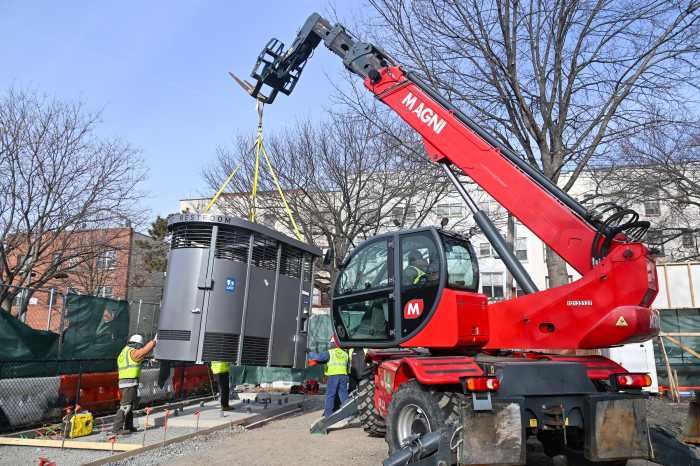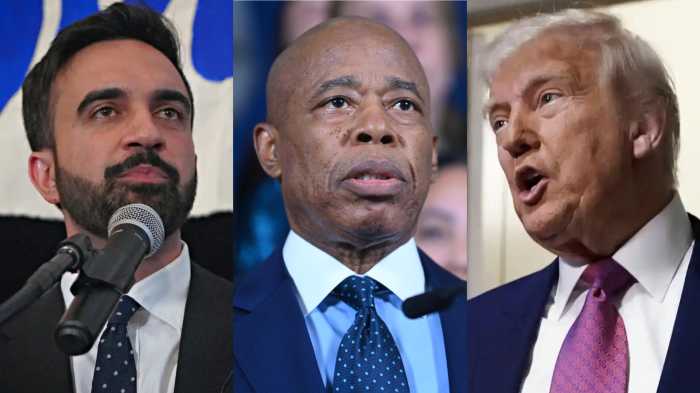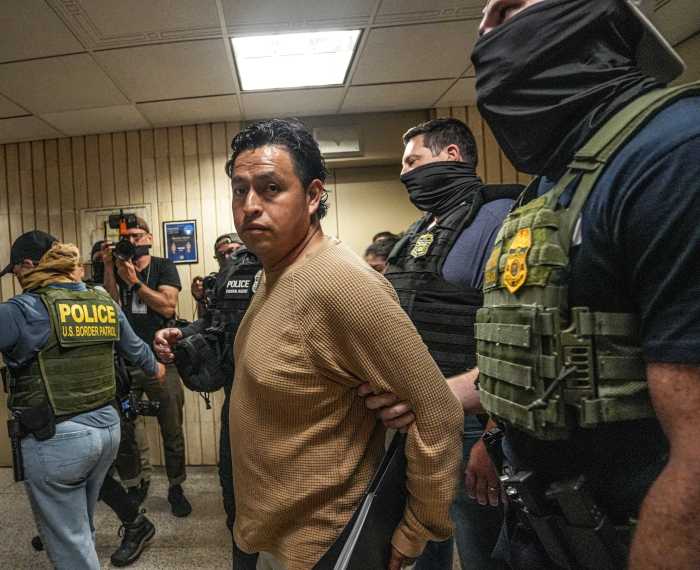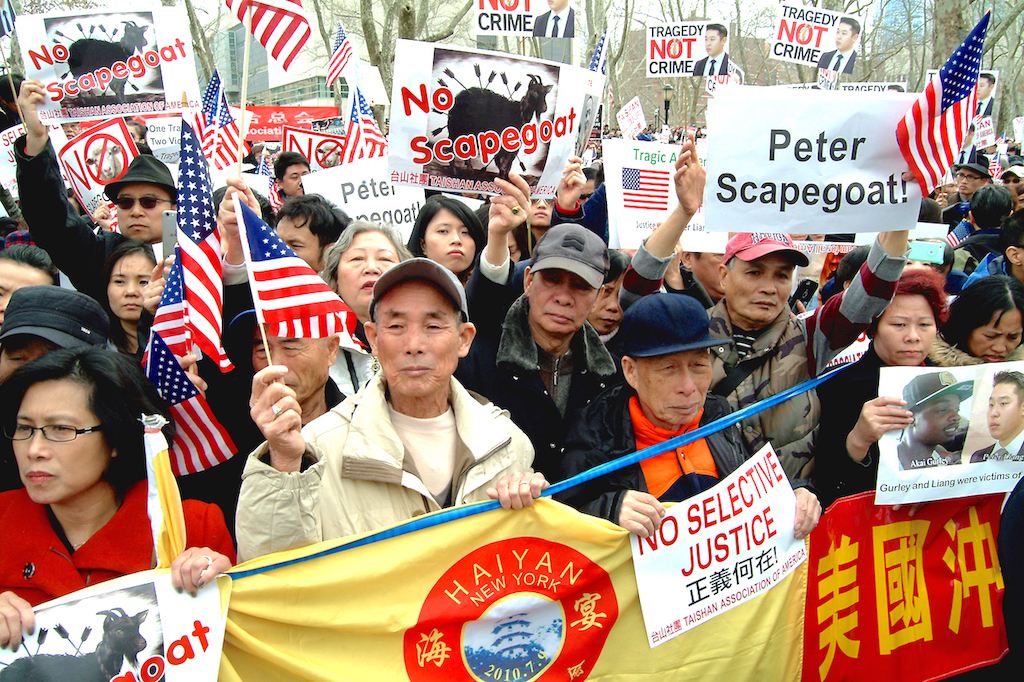
BY LUCAS ROPEK | Following the recent conviction of former Police Officer Peter Liang in the fatal shooting of Akai Gurley, City Councilmember Margaret Chin called for his sentencing not to be severe.
“Today, I have asked my Council colleagues to join me to ask for leniency in the case involving Peter Liang,” the Lower Manhattan councilmember said in a Feb. 18 statement.
“Two rookie police officers should never have been placed on a vertical patrol in an unfamiliar, darkened stairwell,” she said, referring to the method of policing that often places rookies in dangerous spots.
Chin also blamed the “culture of neglect” surrounding New York’s public housing, which, she offered, contributes to an “atmosphere of fear” that helped lead to Liang’s decision to fire.
Chin is one of only two Asian-American councilmembers in New York City, the other being Peter Koo of Queens.
Similarly, in published reports, Koo has said he believes both the New York City Housing Authority and Police Department should accept some responsibility for Gurley’s death, in that conditions within public housing and patrol methods must be improved.
“It’s possible the grand jury were influenced by the prior decisions, and were afraid of stirring violence,” he said, referring to the recent number of police-involved shootings that have fueled the Black Lives Matter movement.
A very strong advocate for Liang has been Assemblymember Ron Kim — the only Asian-American in the state Legislature — who released a statement on Feb. 12, shortly after Liang’s conviction.
“I do not believe true justice prevailed,” Kim said. “Our system failed Gurley and it failed Liang. It pitted the unjust death of an innocent young black man against the unjust scapegoating of a young Asian police officer who was frightened, poorly trained and who committed a terrible accident.”
An estimated nearly 10,000, mostly Asian-American protesters rallied in Cadman Plaza Park in Brooklyn, on Sat., Feb. 20, to voice their anger and disbelief at Liang’s conviction. Many of them passed out leaflets urging that the Supreme Court justice who oversaw the case grant a more lenient sentence for Liang.
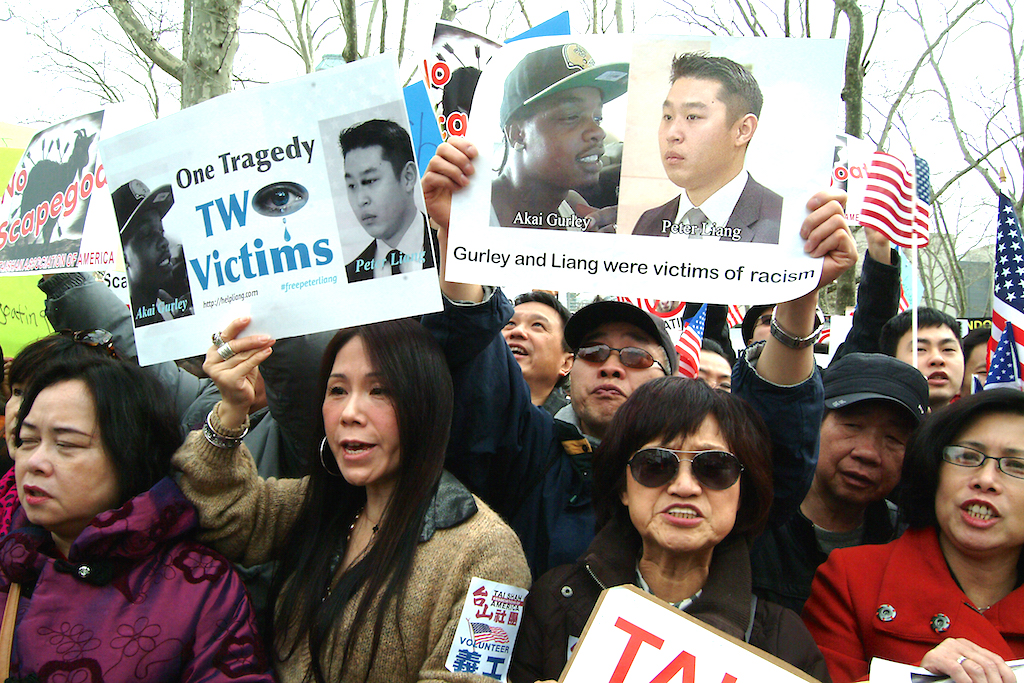
A national movement has also emerged called the Coalition of Justice for Liang. The group has staged protests and rallies in nearly 30 different cities across the country. Jack Ouyang, a spokesperson for the group, recently issued a statement justifying the coalition’s support for Liang:
“In the wake of so many unfortunate deaths of unarmed African-American men in the hands of police officers, the tension between the police and African-American communities nationwide has reached an unprecedented level. However, it is totally wrong for the prosecutor to single out Mr. Liang.”
Support for Liang isn’t universal, however.
CAAAV (Coalition Against Anti-Asian Violence), a Lower East Side-based activist group, has posted a statement on its Web site defending the decision to convict the rookie.
“The fact that Officer Liang is an Asian-American shouldn’t mean that Asian-Americans don’t call for justice for Akai Gurley,” CAAAV’s statement said. “Quite the opposite — it should force us to examine how each of us is complicit in maintaining the status quo.”
The group, which traditionally advocates for the protection of poor and working-class Asian-American communities, feels that Gurley’s shooting was indicative of a larger problem in law enforcement that needs to be addressed.
Gurley, a 28-year-old African American man, was killed on Nov. 20, 2014, by a ricocheted bullet fired by Liang in a darkened stairway in East New York’s Pink Houses as Liang and his partner, Shaun Landau, were doing a vertical patrol. Gurley, a Pink Houses resident, had decided to take the stairs because the elevator wasn’t working.
For many, Gurley’s death became yet another indication of a broken criminal justice system that unfairly victimizes low-income, predominantly African-American individuals.
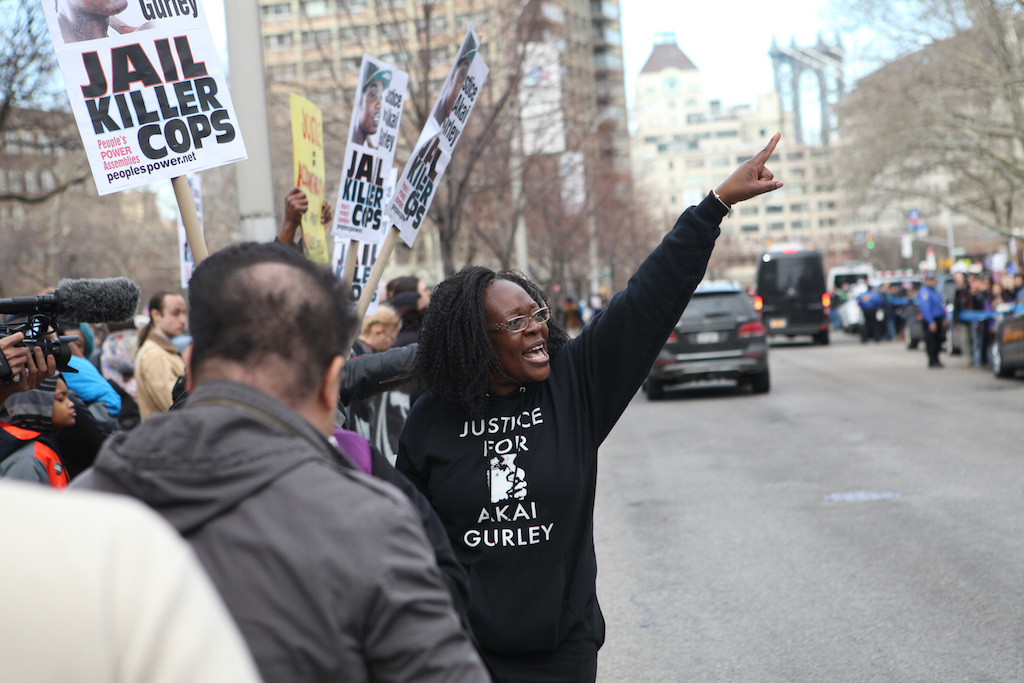
After Liang’s conviction by a jury on Feb. 11., however, the issue has taken on different racial connotations. Liang’s Chinese-American heritage has New York’s Asian community saying that he is being “scapegoated” for his actions because he is not white.
Liang was immediately fired from the New York Police Department following the incident, and his conviction on second-degree manslaughter and several counts of misconduct now has him facing up to 15 years in prison.
Though Gurley’s death can be seen as part of a larger problem of deadly police misconduct, it’s also something of an anomaly, considering that most officers involved in fatal shootings are never convicted, or even brought to trial.
One of the most prominent recent examples is the Eric Garner case, in which police decided to arrest Staten Islander Garner on suspicion of selling untaxed loose cigarettes on the street. Garner — who was overweight and asthmatic — died during the arrest as he was brought down with a chokehold and police pressed down on his prostate body.
Yet Police Officer Daniel Pantaleo was acquitted of all charges, despite the fact that an amateur video presented to the jury clearly showed him putting Garner in the illegal chokehold that compressed his windpipe.
Because white police officers like Pantaleo have escaped punishment, politicians and community leaders in New York’s Asian-American community see bias in Liang’s conviction.




